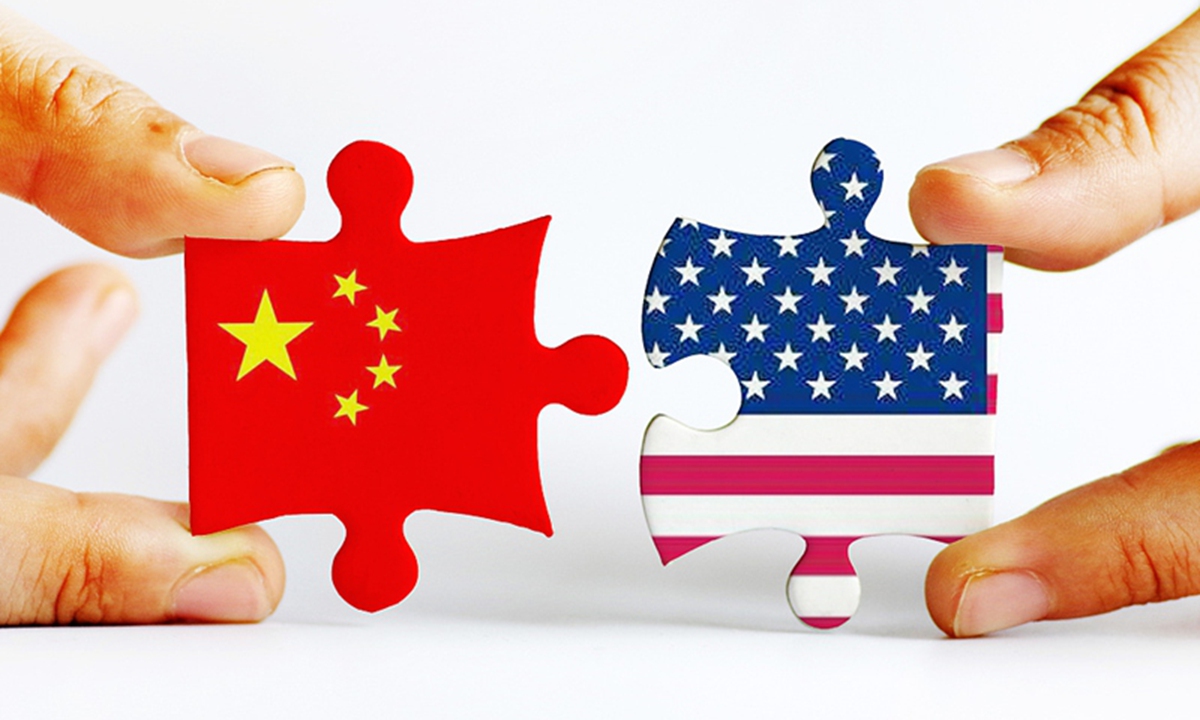
China US Photo:VCG
Chinese enterprises' willingness to invest in the US has contracted, as a new survey released by the China General Chamber of Commerce (CGCC) in the US showed that over 60 percent of the surveyed companies reported a deteriorating business and investment environment in the US.
Observers blasted the US' intensifying crackdown targeting Chinese companies and "decoupling" push against China, which have harmed previously close China-US economic and trade cooperation. They said this will draw backlash against the US economy, especially with the loss of jobs and opportunities brought by China's development.
Over 60 percent of the surveyed Chinese companies reported a deteriorating business and investment environment in the US, according to an Annual Business Survey on Chinese Enterprises in the US the CGCC sent to the Global Times on Wednesday.
The ongoing expansion of sanctions lists for enterprises and more frequent industrial investigations and import policy adjustments have led companies facing significant changes in the business environment they operate within, it said.
The profit margin distribution showed a significant decline, reminiscent of the early pandemic period in 2020. Notably, there was an increase in the number of companies experiencing a decline in profit margins over recent years.
"The survey effectively shows the reality of Chinese companies' investment in the US, as the US' domestic political and business climate has deteriorated amid the US government's crackdown on and restrictions of Chinese companies," He Weiwen, a senior fellow from the Center for China and Globalization, told the Global Times on Wednesday.
The US will likely maintain high pressure on Chinese companies and their investments in the US, He said, calling for Chinese companies to appeal to local legislative bodies in the US while urging the federal government to correct their mistakes.
Bilateral trade between China and the US showed notable growth in May compared with the overall trend recorded in 2023, underscoring the still significant potential for economic and trade cooperation between the world's two largest economies, He said.
He said the two countries should strengthen cooperation between enterprises and local governments to stabilize the overall China-US economic and trade ties.
In a recent development, the Biden administration is reportedly investigating China Mobile, China Telecom and China Unicom over concerns that the three firms could exploit access to American data through their US cloud and internet businesses by providing it to Beijing.
Li Yong, a senior research fellow at the China Association of International Trade, told the Global Times on Wednesday that the Biden administration's politically driven investigations and crackdown on Chinese companies run counter to its self-proclaimed market economy and fair competition.
"The US' unilateral moves will only backfire, as they will weaken market competition, see a drop in new jobs and tax, and hinder previously close China-US cooperation and technological innovations within the US," Li said.
A series of hegemonic and bullying practices against Chinese companies underline the US' double-dealing, according to Li. While the US touts fair market and free trade, its unilateral and protectionist actions are against its words. US President Joe Biden committed that the US would not seek to decouple from China or hinder China from growing its economy, but the US' practices tell a different story, Li said.
"From a longer-term perspective, trade and investments have always been the cornerstone of the China-US relations," said Hu Wei, chairman of the CGCC.
The cumulative synergies and benefits brought about by the China-US cooperation far outweigh the risks, Hu noted.
Under the guidance of the "San Francisco Vision" outlined by the presidents of the two countries, companies from both sides need to strengthen communication and coordination to reduce unnecessary trade frictions and policy barriers and foster a more stable and open bilateral trade environment, Hu said.




